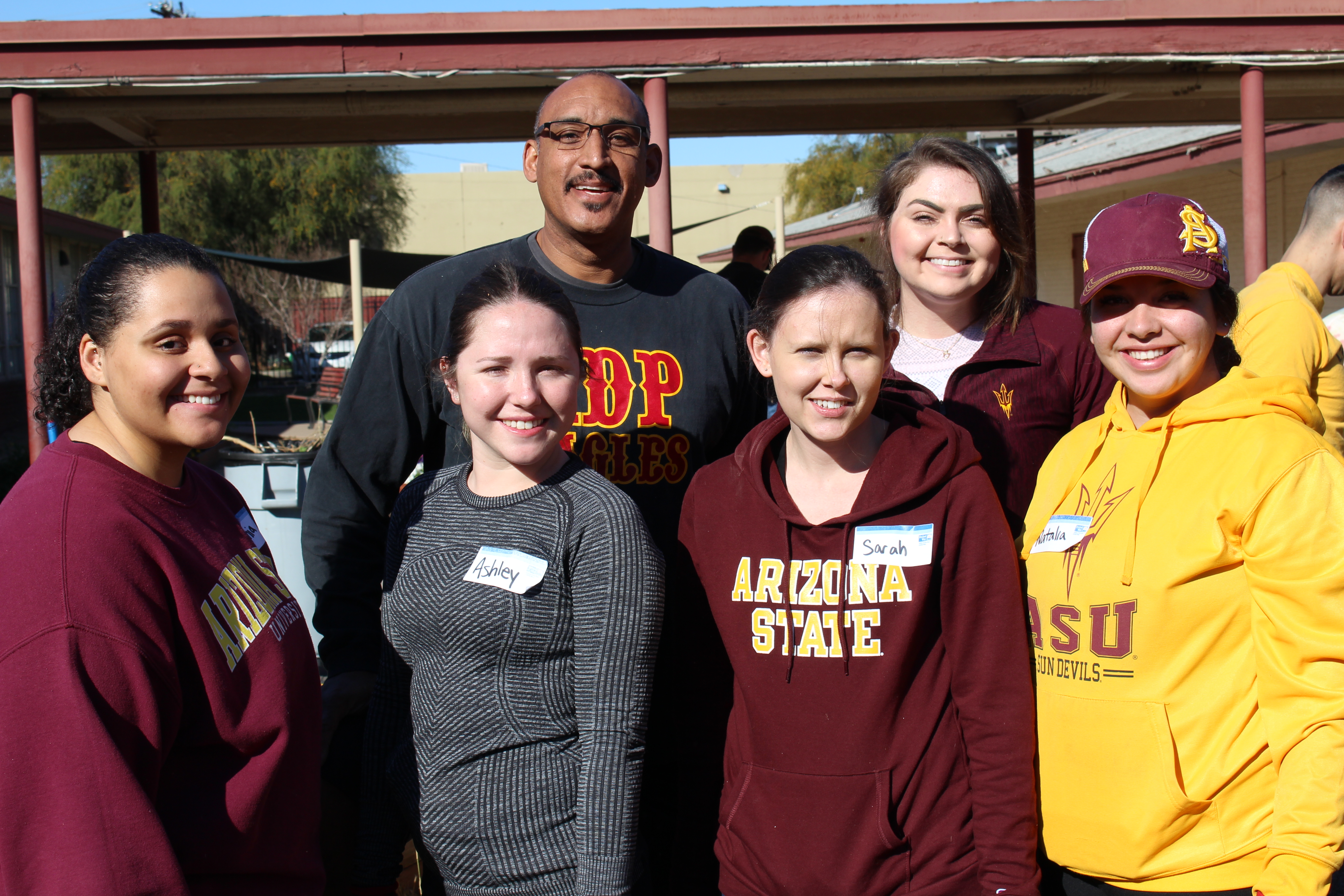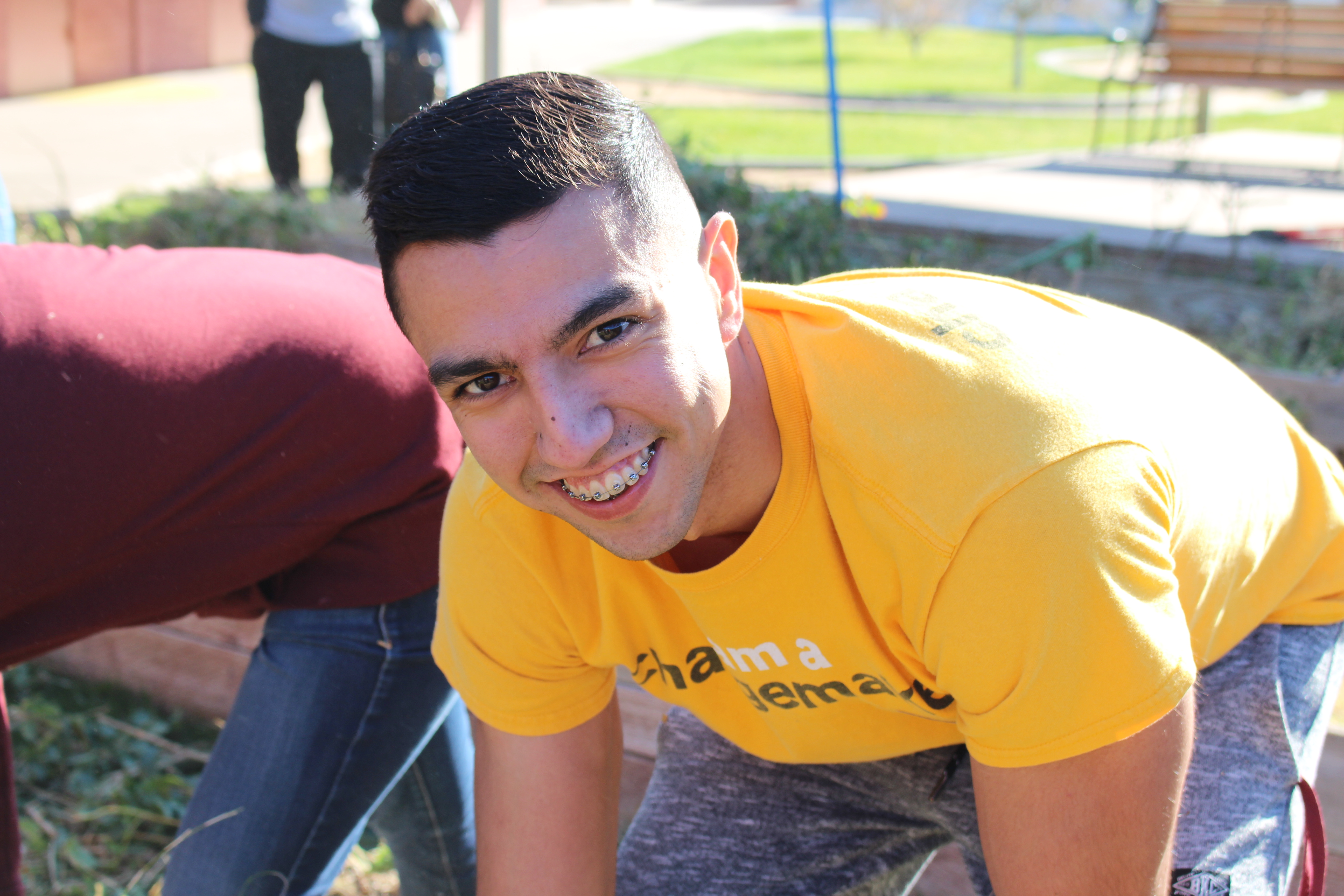Sowing seeds and growing connections to end hunger in Maricopa County
Garden project helps ASU health disparities class be part of the solution
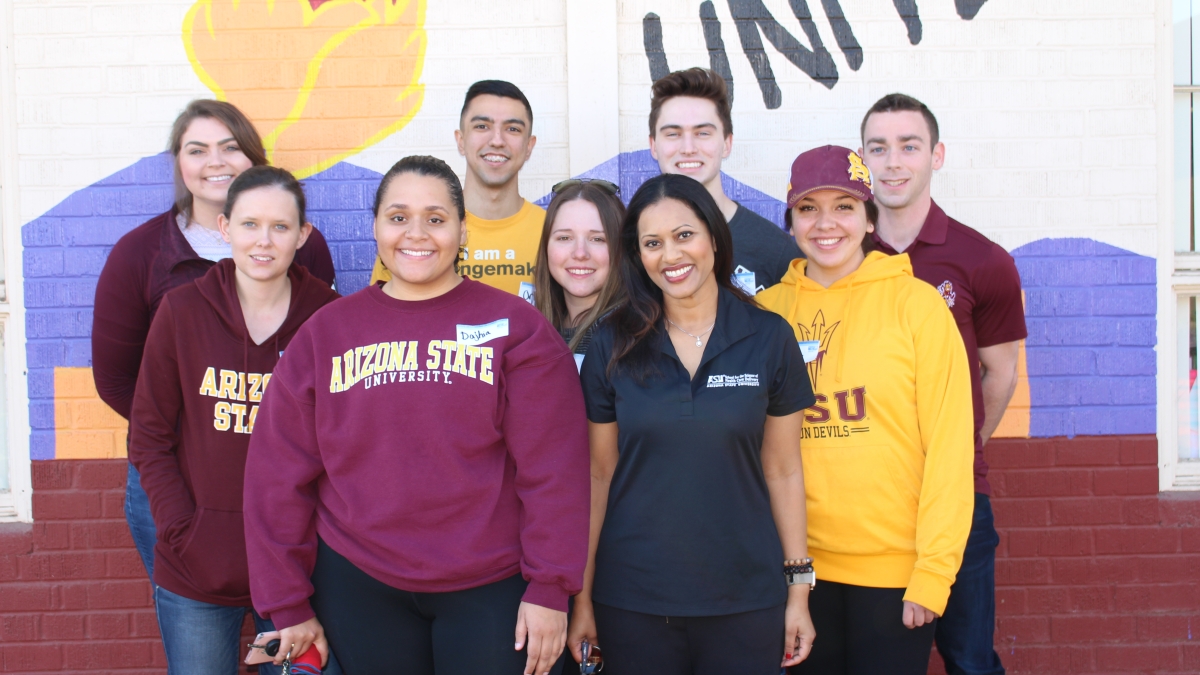
Left to right: (front row) Dajhia Burris, Swapna Reddy; (middle row) Sarah Reimus, Ashley Meenan, Natalia Malcolm; (back row) Desiree Feria, Orlando Acuna, Andrew Lataille, Matthew Speer
Sometimes experiential learning means getting your hands dirty.
That was the first lesson some Arizona State University students learned Feb. 24 when they ventured beyond the walls of their health disparities class and into the inner courtyard of Academia del Pueblo, a K-8 charter school just off Central Avenue in Phoenix to put on gloves and began working to clear some weed-choked, raised-bed garden boxes.
They had signed up to help with a gardening project at this Title I school about two miles from the Downtown Phoenix campus as part of a unit on food deserts. Earlier in the semester, when their teacher circulated a list asking for volunteers, these students jumped at the chance. The spots filled in one afternoon.
This was the first time health disparities teacher Swapna Reddy, clinical assistant professor at ASU's College of Health Solutions, had ever asked her students to do any service project as part of the class, and she was surprised and pleased by the quick response.
“It’s great to talk in class about all the things that cause food deserts, but it’s greater for them (the students) to get out and take part in a micro effort so they can understand their role in the solution,” she said.
These students have been looking for a chance to do something to help.
“I’ve been wanting to do some volunteer work, but it’s not always easy to find places when you’re on campus,” said junior Sarah Reimus, a public health major, as she tore at the dry, dusty weeds.
Senior Desiree Feria, also a public health major, agreed: “We’re really busy with classes and everything, so it’s hard to fit it in, but when this opportunity came up, I was really glad.”
Micro efforts like this one are part of a larger strategy to create sustainable, ongoing partnerships to solve the problem of hunger in Maricopa County, said Jayson Matthews, director of Ending Hunger for Valley of the Sun United Way, as he watched the progress from under Academia’s courtyard awning.
He is working to involve students with communities close to campus and make it as easy as possible for them to both participate in philanthropy and help alleviate local food insecurity. These “Saturday morning opportunities,” as he calls them, get students closer to where the work needs to be done.
“The average life expectancy in this part of Maricopa County is ten years less than for those living in north Scottsdale,” he said. “Giving students chances to help solve the problem of food deserts shows them where the work is critical while they’re actually help solving the problem. So, win-win.”
It’s one thing to come on a Saturday morning and clean out some overgrown garden boxes, but those involved hope this project will plant some metaphorical seeds that grow into a sustained connection among the community, ASU and United Way.
This is Academia del Pueblo’s first experience working with the United Way on any project, said Frank Lomeli, Academia’s principal of four years. The project started from the community itself last fall when Academia parents and school personnel decided to resurrect the abandoned garden beds on one half of the courtyard.
Left to right: (front row) Dajhia Burris, Ashley Meenan, Sarah Reimus, Natalia Malcolm; (back row) Frank Lomeli, principal of Academia del Pueblo; Desiree Feria
The Garden Club, as it came to be known, sparked something. Family and community engagement increased three-fold at this school where 30 percent of the students are English language learners, the highest percentage of any charter school in Phoenix. Now a group of dedicated parents comes every Friday to care for the plants, Lomeli said. Several have completed master gardener courses and then brought in other parents to help.
“Now it’s sustainable,” he said. “They’re taking their knowledge and bringing other parents in, so we want to take that same excitement and do it on this side of the garden for our students to plant,” he added, gesturing toward the neglected beds on the other half of the courtyard where the parents, ASU students and other volunteers were working.
A sustainable partnership is the goal, but what makes it all happen comes down to one word: trust. “It’s the ‘secret sauce,’” Matthews said. “If you don’t have the trust and civic participation in the community you’re trying to work with, then you’re just distributing food boxes. And while that’s very critical, and you can use that to help build trust, if that’s your entire strategy, you will be distributing food boxes forever.”
Making the community part of the decision making is the best way for big institutions like United Way and ASU to gain the community’s trust.
“It seems like such a small thing, but they’re so used to having these outside organizations do things to them," Matthews said. "If we’re really serious about improving the health and the economic situation of the communities we work with, we have to make them part of the solution because they’re the ones who live here. We’re the tourists. If we can work with them and with those institutions that are established here with the residents, that will make real change.”
Reddy and Matthews — who has been coming to Reddy’s class as a guest lecturer for the past two years — want this Saturday opportunity to be the start of a lasting connection between Reddy’s students, the community and the End Hunger United Way program.
“We hope that today inspires our students to do more, but we’re talking about how to make this a larger curricular effort to bring them into the community because this community is just right by our school,” Reddy said.
Orlando Acuna
It looks like it may already be happening. In talking with the ASU students working that day, Lomeli found out that one of them — Orlando Acuna, a College of Health Solutions senior hoping to go to medical school after graduation — is originally from Mexico and speaks Spanish. He asked Acuna if he wanted to mentor one of the Academia students. Lomeli wants his students to aspire to college, and they need to interact with successful students that look like them and can speak their language. Acuna starts Friday.
More Health and medicine
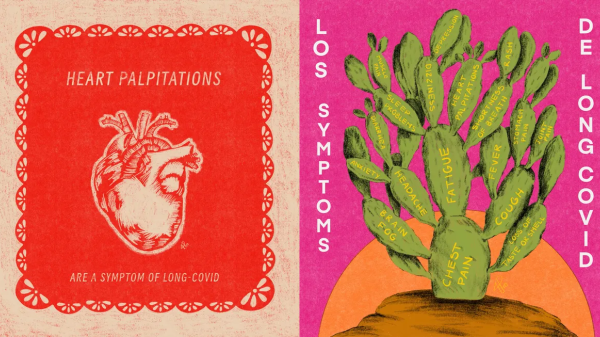
Health communication program brings long COVID awareness to Latinos
After COVID-19 hit the Latino community especially hard, Gilberto Lopez created COVIDLatino, a health communication program…
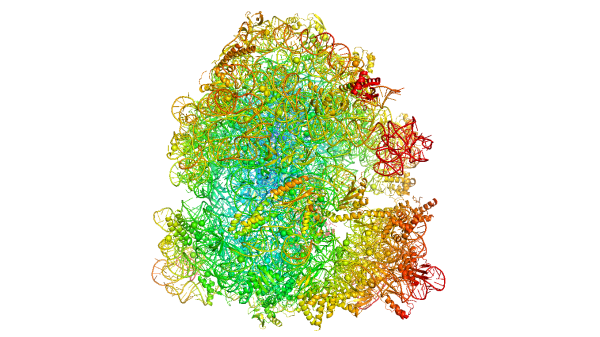
Gates Foundation to fund research on antibiotic resistance
Antibiotic resistance, what happens when germs develop the ability to defeat the drugs designed to kill them, is a growing…
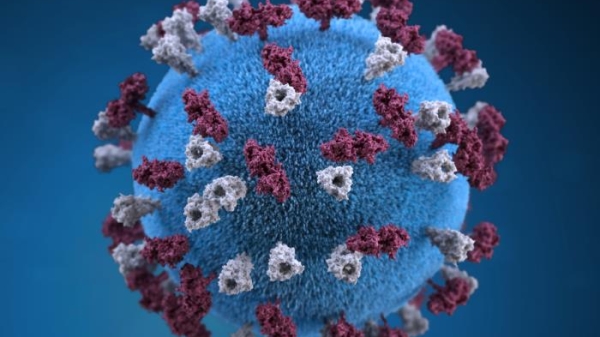
ASU epidemiologist on the rise in US measles cases
The Centers for Disease Control and Prevention issued an alert this month about a rise in measles cases worldwide. And as of…
